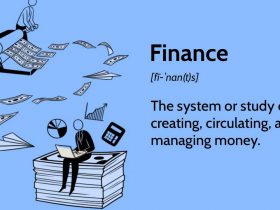Getting to grips with your credit file is crucial if you want to make sure your financial history is in the right shape for getting accepted for credit. However, many of us don¡¯t have a great understanding of what a credit file is ¨C or what we need to do to make sure it stays in good shape. In fact, credit report provider Credit Karma (previously known as Noddle)?found that 56% of people were unable to correctly state what a credit score is. Much of this confusion is the result of myths that have arisen around what your credit score is and why it matters.

Need more detail? Read our “Ultimate Guide to Improving Your Credit Rating”
The Most Common Myths – debunked!
- There is only one credit score per person. The UK doesn¡¯t have a universal credit scoring system so whichever credit rating agency you choose to check your score with, you¡¯ll see a different number.
- Lenders use the credit scores that agencies compile. When you apply for credit the lender will access your credit file to look at your credit history. However, they won¡¯t see the score that the agency has created for you. Lenders make their own decisions about credit scoring based on their own criteria.
- There is a credit blacklist. Even if you¡¯ve been rejected for credit by one lender you may still find that you¡¯re eligible for credit with another. There is no such thing as a credit blacklist that means that every application you make won¡¯t be accepted. This is the advantage of different lenders using a range of criteria to create their own credit scoring systems.
- If you have a bad credit score you¡¯ll never get any credit. The financial products market offers a very wide range of different options when it comes to credit. If you have a poor credit score then you may struggle to get credit with a mainstream lender or a high street bank. However, other lenders are specifically open to people with poor credit and there are lots of loans that are designed for borrowers without a perfect credit score e.g. guarantor loans.
- Once your credit history is recorded it is set in stone. You can¡¯t go back and change your credit history unless there is a mistake in it. However, there are lots of ways that you can take steps to improve what¡¯s there. It¡¯s also important to note that your credit history doesn¡¯t go right back through to the first year you had one. Accounts, credit cards and loans will stay on your credit file for six years and after that, they are automatically removed.
- If you have little ¨C or no ¨C credit you¡¯ll have a higher credit score. The purpose of lenders checking your credit file is to see how you¡¯ve handled borrowing in the past. So, if there is no evidence of borrowing this could actually bring your credit score down. On the other hand, borrowing can help to give your credit score a boost ¨C this depends on the borrowing being handled successfully i.e. the loan or credit card being affordable for you and repayments made on time.
- It¡¯s not possible to improve your credit score. The good news for anyone who doesn¡¯t have that ideal credit score is that there is plenty that you can do to improve it. Some of the steps you could look into include:
- Pay off some of your existing debt i.e. more than minimum payments
- Make sure that you¡¯re on the electoral roll
- If you¡¯ve been rejected for credit wait at least six months before applying for more
- Keep paying your bills on time and stay up to date with repayments
- Anyone who automatically earns a lot will have a high credit score. Although earnings may be a factor in your score, they don¡¯t guarantee a good one. Someone who earns a lot but has missed a number of credit card payments or defaulted on a loan could end up with a low score as a result.
- Your partner¡¯s credit history will have an influence over your chances of being accepted for a loan. On the whole, lenders don¡¯t assess your partner if you make a borrowing application, even if you live together. It¡¯s only if there is a financial connection that this may have an impact, such as a shared bank account or a joint credit card.
These credit file myths have been the cause of a lot of confusion over the years. However, understanding what credit means to you the consumer is a lot simpler than it seems once these myths have been debunked.











Leave a Reply